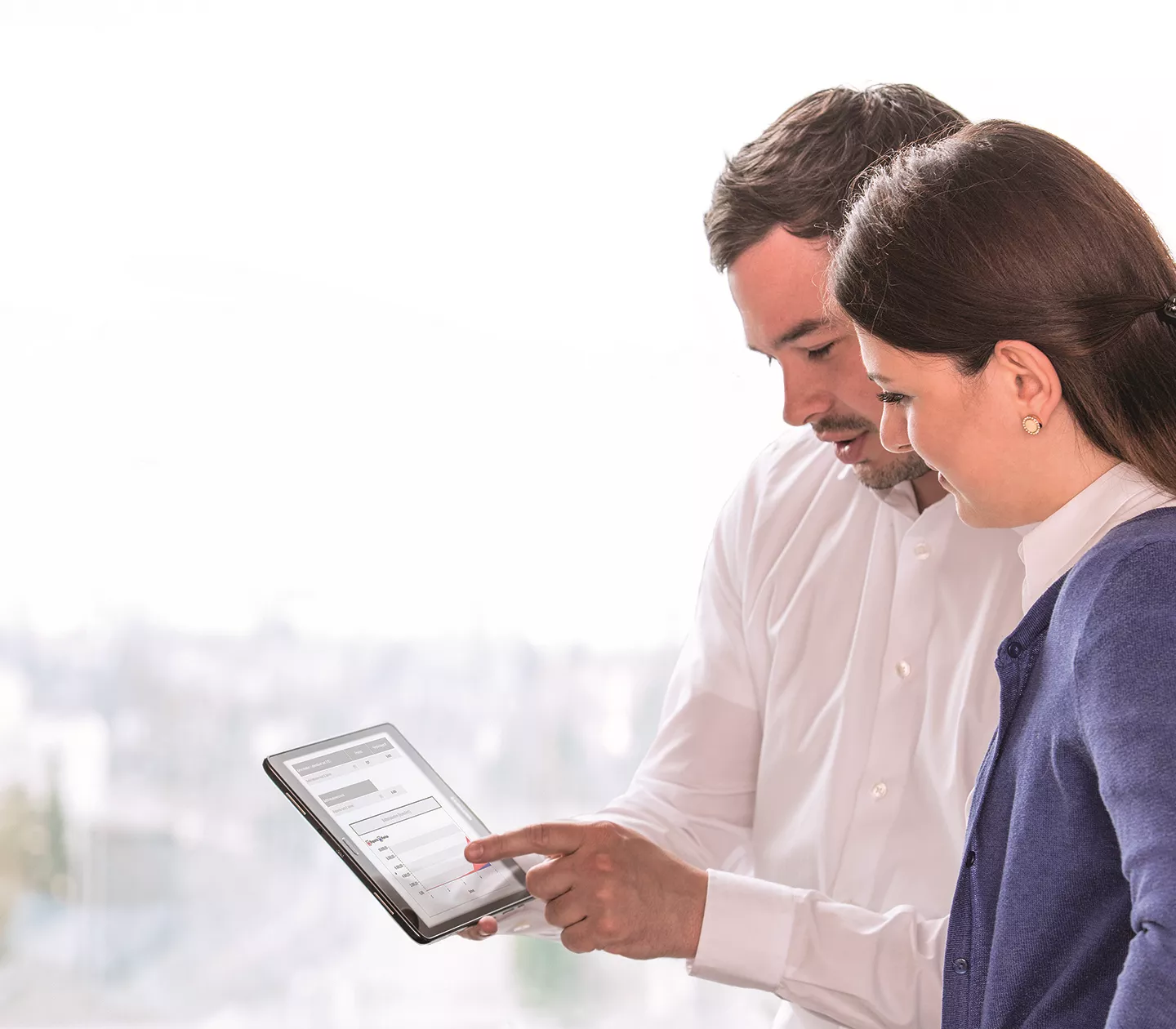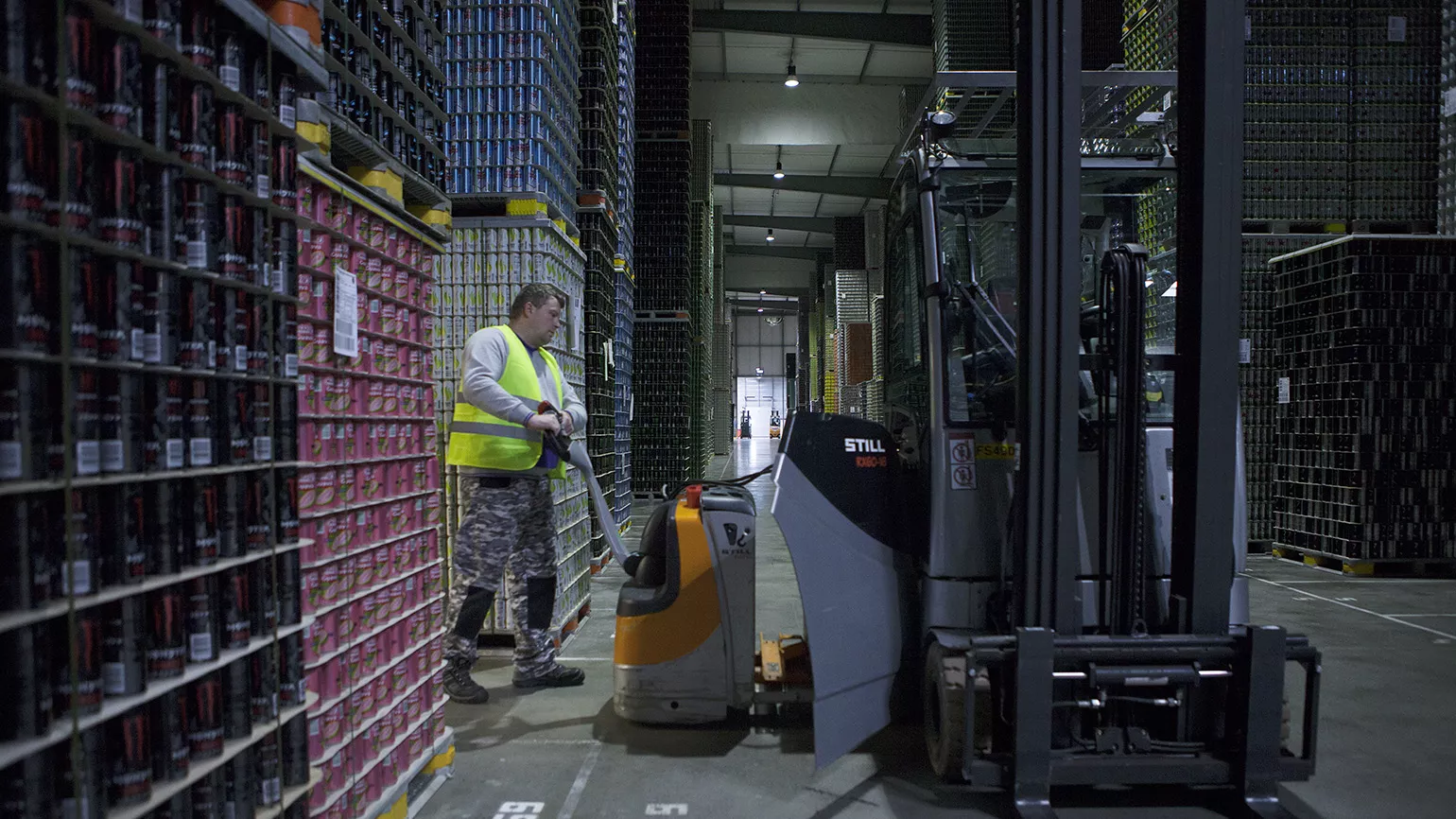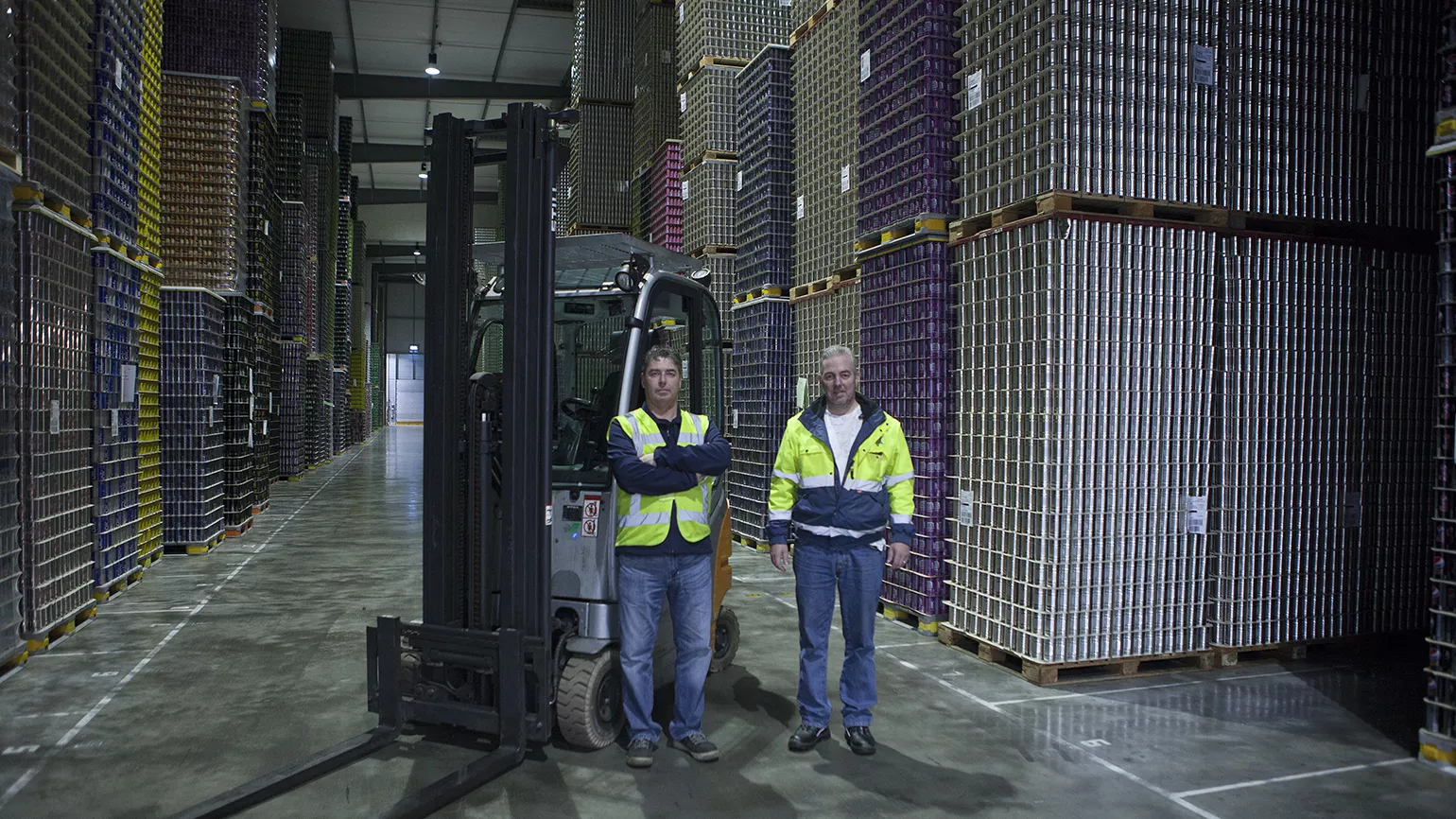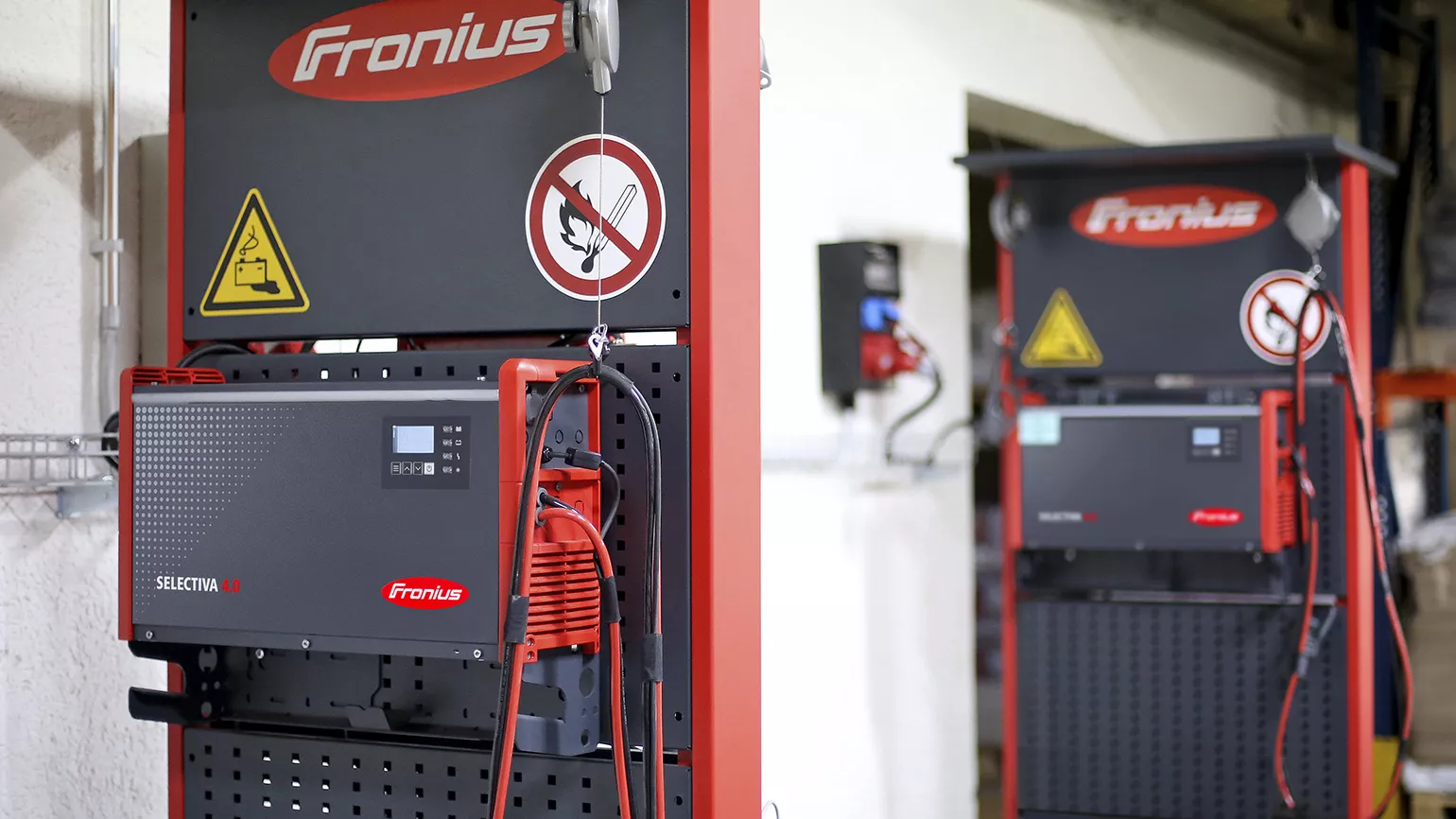Hartog & Bikker - Getting the most out of traction batteries
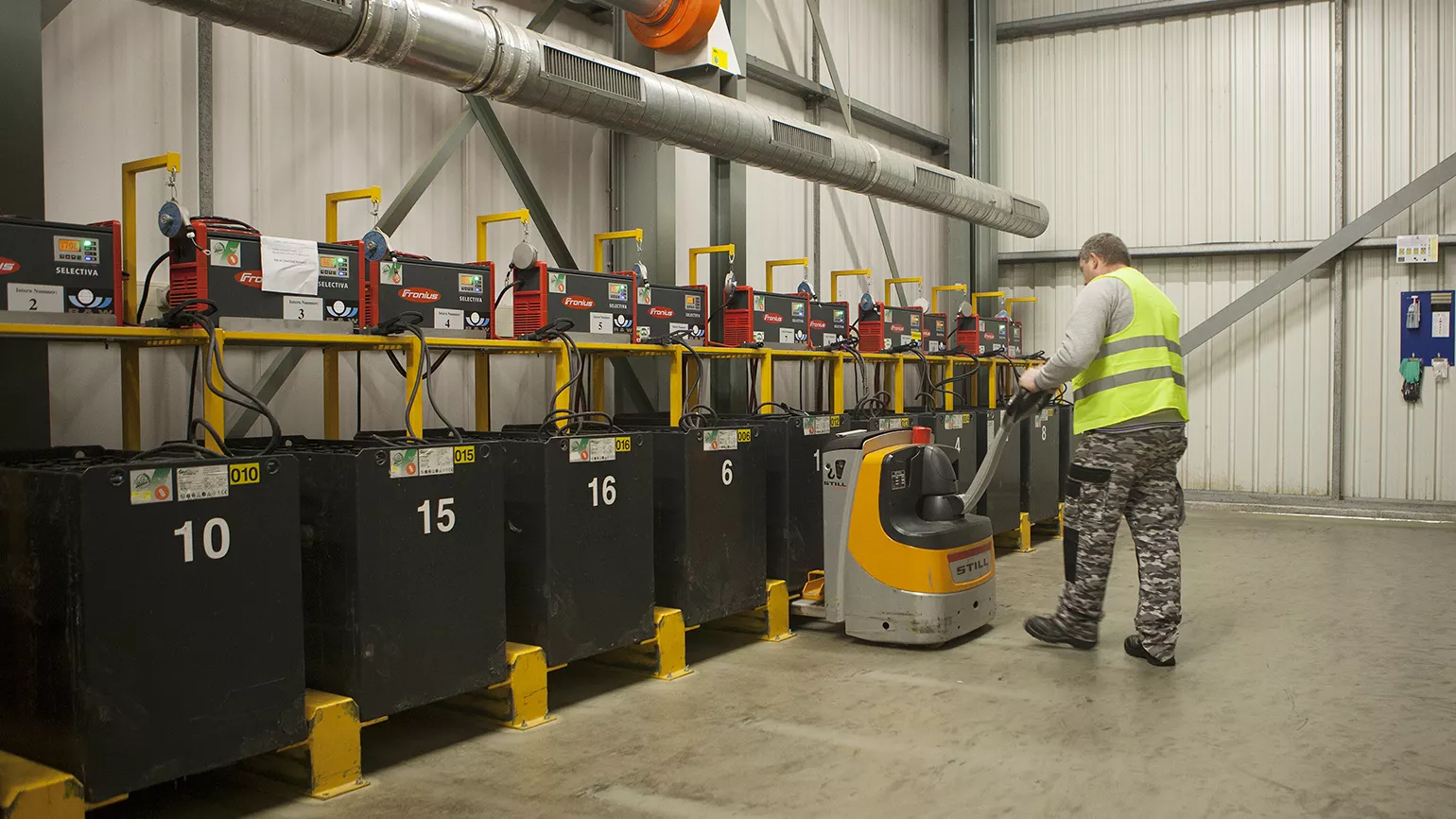
Up to 145 HGV transports each day
The logistics company was established in 1931 in Leerdam by the two founders Den Hartog and Bikker. They took over the transports for the town’s glass factory – still using horses and carts at that time. In 1997, the firm was acquired by the Meeus family company which, over the years, has grown into a group of several firms and is now one of the leading logistics companies in the Netherlands. As a part of this group, Hartog & Bikker today organises and manages the complete logistics and transport flows for products such as cardboard packaging, plastic crates, plastic bottles and glass and can packaging for major international clients from a range of market segments. Hartog & Bikker has specialised in volume goods and has developed into one of the most important European transport companies for this segment. Employees based in the headquarters in Vuren and in Oss coordinate the orders for all branches, sending up to 145 HGVs out on the road every day. The majority of transports are headed for the Benelux countries, to northern France or to Germany. On average, Hartog & Bikker stores up to 300,000 pallets at its site, over an area of approximately 350,000 square metres. In order to move the goods around efficiently, nine electrically-powered forklift trucks manufactured by Still and R&W are used at Bikker Logistics BV in Oss. The site operates a three-shift pattern, six days a week. In order to ensure a high level of availability for the fleet, the electric forklift trucks are equipped with 80-volt back-up batteries, which are charged at a central charging station. “Some of the batteries in our lift trucks are already more than ten years old,” explains Sander Schuijers, warehouse manager at Bikker Logistics BV. Previously, these batteries were causing recurring problems. The older battery models were often not charged sufficiently, and minor defects arose frequently. “As a result, we were no longer able to fully rely on the availability of our fleet. The faulty charge cycles had a negative effect on the batteries. This was very annoying for us and cost a lot of time and money, due to the additional maintenance and repair expenses,” summarises Schuijers.
Availability of forklift truck fleet improved
In order to stop such problems arising, the logistics specialists gradually replaced the old chargers with battery charging technology from Fronius. Today, the charging station consists only of devices from the Austrian experts. These devices were delivered and set up by the Dutch sales partner of Fronius, R & W Batterijen. “When it comes to the energy consumption and the performance of the forklift trucks, many users generally look only at the batteries and the vehicles themselves,” explains Stevan van Laar, account manager at R & W. “However, it is in the charging technology – a component that is frequently overlooked – that the greatest potential for optimisation is often found. We therefore recommended the Fronius devices, as many of our customers have had good experiences with them in the past.”
Ri charging process enables gentle charging
Bikker LogisticsBV is using the battery charging systems from the latest generation of theSelectiva product range. These systems incorporate the Ri charging process.“This is the most advanced process currently available on the market,” notesStevan van Laar. The secret: unlike conventional technology, this process doesnot follow a rigid characteristic with a fixed current across the entirebattery capacity range. Instead, the characteristic results from the effectiveinner resistance (Ri) of the battery, which is dependent on its voltage,capacity and state of charge. “This means that each charging process is unique,with an individual characteristic,” explains Stevan van Laar. “Furthermore,losses during the main charging phase, which impair the energy balance and leadto harmful heating up of the battery, are minimised.” The Selectiva batterycharging systems from Fronius also have a special Refresh characteristic. Thishelps to improve the performance of deeply-discharged and sulphated batteriesagain. Warehouse managerSander Schuijers is also impressed by the technology: “The gentle and adaptedcharging preserves the capacity of the batteries and extends their servicelife. This allows us to reduce our operating costs and, above all, to increasethe availability of the fleet of forklift trucks.” What is more, the process ofreplacing and connecting the batteries is also extremely simple. The employeesremove the heavy 80-volt batteries from the vehicle using a manual lift truck,transport them carefully to the storage area and exchange them for afully-charged battery. This process takes only a few minutes, then the forklifttruck is ready for use once again. Employees simply have to connect the plug –everything else happens automatically. “With the new charging technology fromFronius, even older battery models function reliably again. Frequent failuresare now a thing of the past,” summarises Sander Schuijers. “Thanks to Froniuswe can concentrate on our actual work again – and rely fully and completely onthe availability of our forklift truck fleet. This ensures seamless processeswithin our company.”
